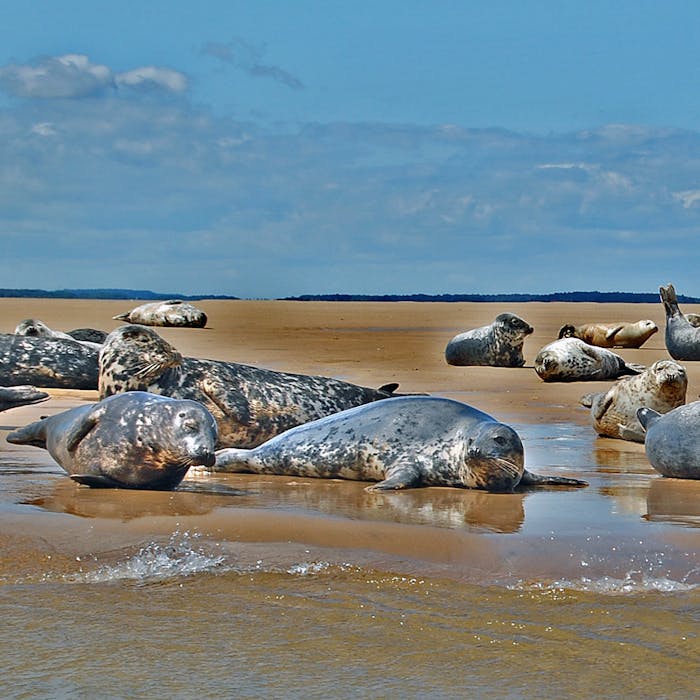
Grey seal
The grey seal is the larger of the two UK seal species, and are particularly abundant around the coasts of the Outer Hebrides and the Orkney Islands in Scotland.
Small numbers are found off the coasts of Wales, Cornwall and Norfolk, and larger numbers off the Lincolnshire coast, Farne Islands, Isle of May and Shetland Islands.
The grey seal can be distinguished from the other seal species in the UK, the common seal, by its larger size and longer head with a sloping 'roman nose' profile. Looking straight on, their nostrils are parallel, rather than v-shaped as in common seals. Mainly grey in colour, the unique pattern of darker blotches and spots can be used to identify individuals.
Globally, the grey seal is one of the rarest seal species and about 50% of the world population lives in British and Irish waters.
Sand eels and cod are their most important foods, but grey seals are opportunistic feeders and probably take whatever fish are most abundant.
Males breed with several females: some will try to defend an area around a group of females, while others try to control access to beaches, gullies or pools of water. As a result, the number of females that a male mates with depends on the size of the breeding colony and physical features of the breeding site.
Grey seals usually come ashore to breed from late September until December. They prefer barren uninhabited islands and often go back to the same beach each year to breed. They give birth to a single pup, which the mother sniffs to learn its scent.
Seal pups are born with creamy white fur and stay on land for two to three weeks until they moult. A thick layer of fat just beneath the skin insulates both pups and adults from the cold seawater.
Pups are suckled five or six times a day, more than doubling their weight by the time they are weaned and have moulted their white fur.
Further reading
Links to external websites are not maintained by Bite Sized Britain. They are provided to give users access to additional information. Bite Sized Britain is not responsible for the content of these external websites.
